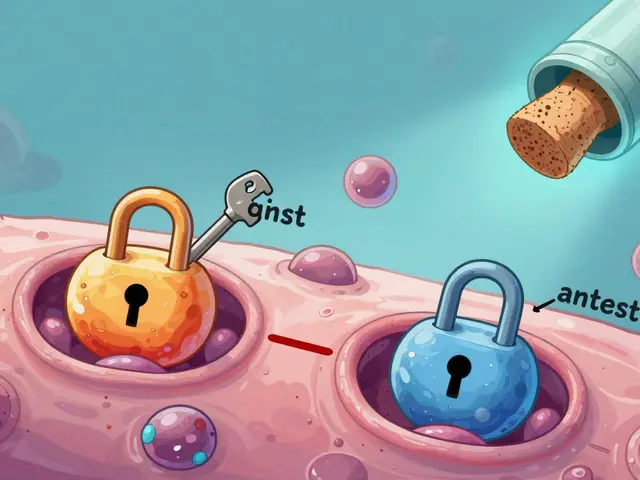Depression Medication: Practical Guide to Types, Choices, and Side Effects
If you're looking for clear help on depression meds, this page sorts the main options, what to expect, and how to make safer choices. I keep things simple and practical so you can talk with your doctor smarter.
First, know the common drug groups: SSRIs like sertraline, SNRIs like venlafaxine, atypicals like mirtazapine, and DNRIs such as bupropion. Mood stabilizers and antipsychotics can also help when depression comes with bipolar disorder or treatment-resistant symptoms.
Side effects vary. Some meds cause sleepiness, weight change, sexual issues, or jittery feelings. With bupropion you often see less sexual side effects but more energy-related side effects. Depakote is used for mood and seizures, but it brings specific risks and blood tests—read about Depakote before you start.
Picking a med depends on your symptoms, other health issues, and past responses. If anxiety is big, an SSRI or SNRI may help. If low energy and concentration are the main problems, bupropion is worth discussing. For bipolar depression, mood stabilizers like Depakote or certain antipsychotics are common.
Start low, go slow, and check in with your clinician after two to four weeks. Many meds take six to eight weeks to show real benefit. If side effects are bad, contact your provider rather than stopping cold; some switches or dose changes help.
Watch for interactions. Some drugs change how antidepressants work. Always tell your pharmacist about supplements, pain meds, or herbal products. If you're buying online, check that the pharmacy is legit and requires a prescription. We cover safe online buying tips on KiwiDrug.
How to talk with your doctor
Tell them what helped before, the side effects you fear, and any family history of bipolar or suicide. These details change safe choices. Ask about alternatives, like therapy, lifestyle changes, or switching to a different class if the first try fails.
Practical tips
Keep a short symptom log: mood, sleep, appetite, and side effects. Bring it to appointments. If you notice thoughts of self-harm, seek help right away —call emergency services or a crisis line. For chronic or complex cases, specialists such as psychiatrists can tailor combinations safely.
On KiwiDrug, you'll find deeper reads: our DNRI piece on Wellbutrin, Depakote guide, and articles on alternatives for related meds. Use those posts to compare options and prepare for visits.
Want quick help? Start with one clear question for your provider: "Which medication fits my main symptoms and medical history?" That draws a focused answer fast.
Medication is one tool. Combining it with therapy, sleep, exercise, and routine check-ins often gives the best results. Read our guides, take notes, and ask clear questions —you deserve to feel better.
If you're pregnant or planning pregnancy, tell your doctor. Some antidepressants carry pregnancy risks. Blood tests and liver monitoring matter for certain drugs. Keep family in the loop when side effects change behavior. For safe online options, look for verified pharmacies, clear contact info, and prescription requirements. Stay informed.

Top Alternatives to Wellbutrin SR in 2024: Effective Medication Options
This article explores six promising alternatives to Wellbutrin SR for managing depression and other related disorders in 2024. With a focus on medications such as Zoloft, Lexapro, Cymbalta, Trintellix, Prozac, and Remeron, it provides key insights into each option’s benefits and potential side effects. Whether you're seeking fewer energy-related side effects or a treatment for both depression and anxiety, this guide lists these alternatives and compares their advantages and drawbacks. Get informed about how each medication works and its suitability for different needs, helping you and your healthcare provider choose the right path for mental well-being.
read more




